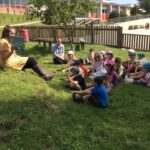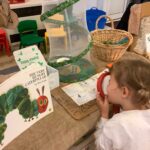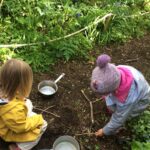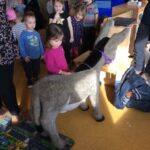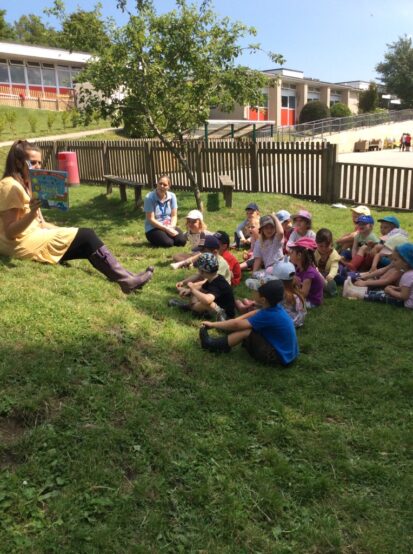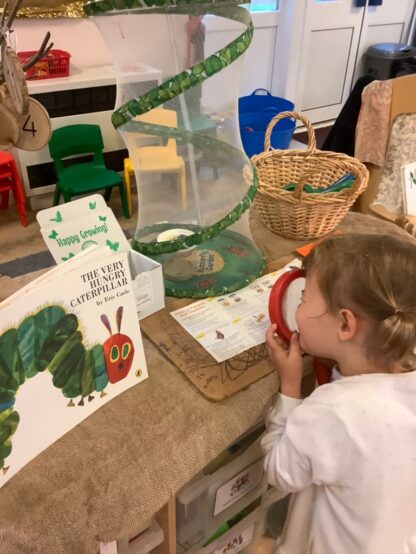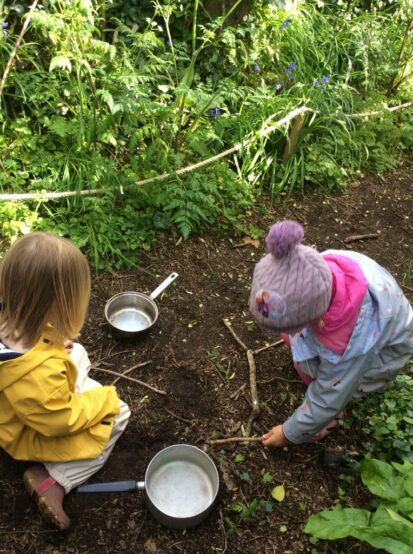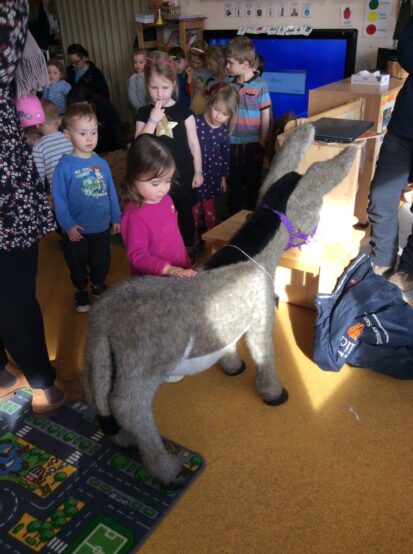EYFS
Intent
At Parc Eglos, our EYFS curriculum is designed to provide motivating first-hand experiences, encouraging children to build resilience, ambition and a lifelong love of learning. The Characteristics of Effective teaching and learning are embedded in everything that we do. We seek to create a sense of enjoyment and interest through highly stimulating learning environments, both indoors and outside, and through our locality, helping to broaden the children’s experiences and relish new challenges.
Our curriculum is child centred and we follow the interests and fascinations of the children. We build on the wealth of knowledge and skills children already have when they arrive and we actively work in partnership with parents, carers and other professionals to provide the best possible start for all children in our care. We build strong relationships which encourage and support a child’s curiosity, helping to develop confidence, independence and creativity to ensure each child flourishes regardless of starting points or needs. We recognise that all children are unique, celebrating and welcoming differences within our school community; we celebrate our Cornish identity and support the children to develop a sense of place as a citizen in the wider world.
Through our approach we ensure that we are preparing our children with the knowledge, skills and attitudes needed for the next stage of their learning. This is so important as we know what our children learn in these vital first years of life will stay with them forever and that optimising children’s early education is the best investment we can make in ensuring their future success.
Underpinned by
The best for every child
Our ambitious and inclusive approach to early education ensures that all children’s needs are met, giving everyone an equal opportunity to succeed.
High quality care
Children’s experiences are central to their learning and development. All staff members form strong and positive relationships to ensure that the children feel valued, safe and well cared for.
The curriculum: What we want the children to learn
Language development and communication skills are central to our curriculum. We ensure that we deliver the seven areas of learning and development in a responsive and thoughtful way, carefully sequencing learning to take place over time, resulting in a greater depth of knowledge, skills and understanding.
Implementation
We implement the learning and development requirements taken from the Statutory Framework for the Early Years Foundation Stage. Our curriculum is play-based and underpinned by the characteristics of effective teaching and learning, recognising how children learn and develop. Through playing and exploring we encourage the children to be curious and to be actively involved in their learning, following their own interests and making their own decisions, setting their own challenges and finding solutions. Play and self-initiated activities, supported by adult-guided activities provide ideal opportunities for every child to develop and strengthen the skills needed to be an effective learner.
Each half term, we introduce a new theme to provide inspiration for learning, whilst providing the flexibility for children to follow their own interests and ideas.
We structure our daily routines so that children have a combination of self-initiated play and direct teaching. This changes throughout the year to take account of the changing needs of the children. Direct teaching sessions are regularly followed by small focused group work, meaning the adults can systematically check for understanding, identify and respond to misconceptions quickly and provide in the moment feedback, resulting in high levels of understanding and progress in all areas of learning and development.
The curriculum is planned for the inside and outside environments and equal importance is given to learning in both areas.
Literacy
Reading is central to our curriculum and our aim is to encourage a love of reading right from the start. We aim to expose the children to a wide range of books to develop their oracy, vocabulary and comprehension.
Phonics
We follow the Read Write Inc Programme to ensure consistency across the school. In Nursery, children focus on the foundations for the phonics. Foundations for phonics sets out the provision that is in place to ensure children are well prepared to begin grapheme–phoneme correspondence and blending at the start of Foundation 2. Phonics contributes to the provision for ‘Communication and language’ and ‘Literacy’ (DfE, 2022) ; it sits alongside our stimulating language-rich provision. Children are encouraged to read at home as well as in school to apply their learning, helping them to become confident and fluent readers.
Self-regulation and executive function
The development of language is crucial to the development of these abilities; positive relationships and playful learning support this. Executive function skills include an ability to focus attention, hold information in mind and plan ahead.
These abilities help children to self-regulate. All of these skills are central to children’s ability to learn effectively in the early years and beyond.
Mathematics
In Foundation, the teaching of mathematics is informed by the White Rose Maths Scheme. High quality environments, resources and adult interactions support mathematical thinking and discussion. The children are encouraged to explore concrete manipulatives and a variety of models and images to develop their understanding of key mathematical concepts.
In Nursery, the children develop a love of maths through games, songs, rhymes and play using concrete manipulatives focusing on cardinality and counting and patterns.
Wider Curriculum
Our wider curriculum is taught through the areas of ‘Understanding the World’ and ‘Expressive Art and Design’. Exciting and meaningful activities are planned to build on the children’s natural curiosity and provide them with the skills, knowledge and confidence to continue their journey as scientists, geographers, historians and artists.
Assessment: checking what children have learnt
Our highly skilled practitioners are tuned into the children, noticing what they can do and what they know. We ensure that our assessments are purposeful and inform future planning to meet the needs of all children. Additional Intervention is offered to provide support or challenge for those children that need it.
Partnership with parents
We develop strong and respectful partnerships with parents and carers in order to help our children thrive. By working collaboratively, we are able to meet the needs of every child and their family.
We encourage parents to help and support their child at home as it has a very significant impact on learning. We encourage all parents to chat, play and read to their children.
Impact
Evidence in our children
Our EYFS curriculum ensures that our children are well-rounded, independent learners; they are happy and confident and ready to transition into the next stage of their learning. Our children enjoy coming to school and nursery and are keen to learn, building on their existing knowledge and skills in an enthusiastic and positive way. They use their knowledge and skills to access a wide variety of activities in age-appropriate ways; they ask questions and show high levels of curiosity, enabling them to extend their own learning through purposeful and playful experiences.
Evidence in Knowledge and skills
Our children develop positive attitudes and skills and gain the knowledge needed to access learning across all seven areas of the EYFS curriculum.
Our children interact positively with their friends and adults, expressing themselves effectively and responding to others appropriately using their increasing vocabulary. The children’s love of stories and books is evident through their high levels of engagement and by the end of the reception year, they use their phonetic skills and knowledge to read with increasing levels of fluency and understanding.
Our children behave well, they manage their feelings appropriately and are increasingly aware of their impact on others. They are creative and skilful problem solvers, showing high levels of resilience and perseverance. Throughout the EYFS, our children demonstrate the key skills needed to become successful lifelong learners.
Outcomes
All of our children within the EYFS do well, making progress to achieve the best possible outcomes from their starting points, preparing them to meet the expectations of their next stage. By the end of the reception year our aim is for our children to achieve the early learning goals and be well-prepared for their transition into year 1. We are ambitious in our expectations and aim to exceed local and national figures for children achieving GLD.
Throughout the EYFS we monitor children’s learning and measure progress through formative and summative assessments which are informed by practitioners’ knowledge of the child. Our observations are made available through electronic learning journeys, which include photographs and videos on Tapestry.
To ensure that our assessments are secure and consistent we moderate internally after each termly data collection. The data is analysed to ensure that our children’s progress is monitored carefully, the impact of actions is evaluated and next steps are identified.
